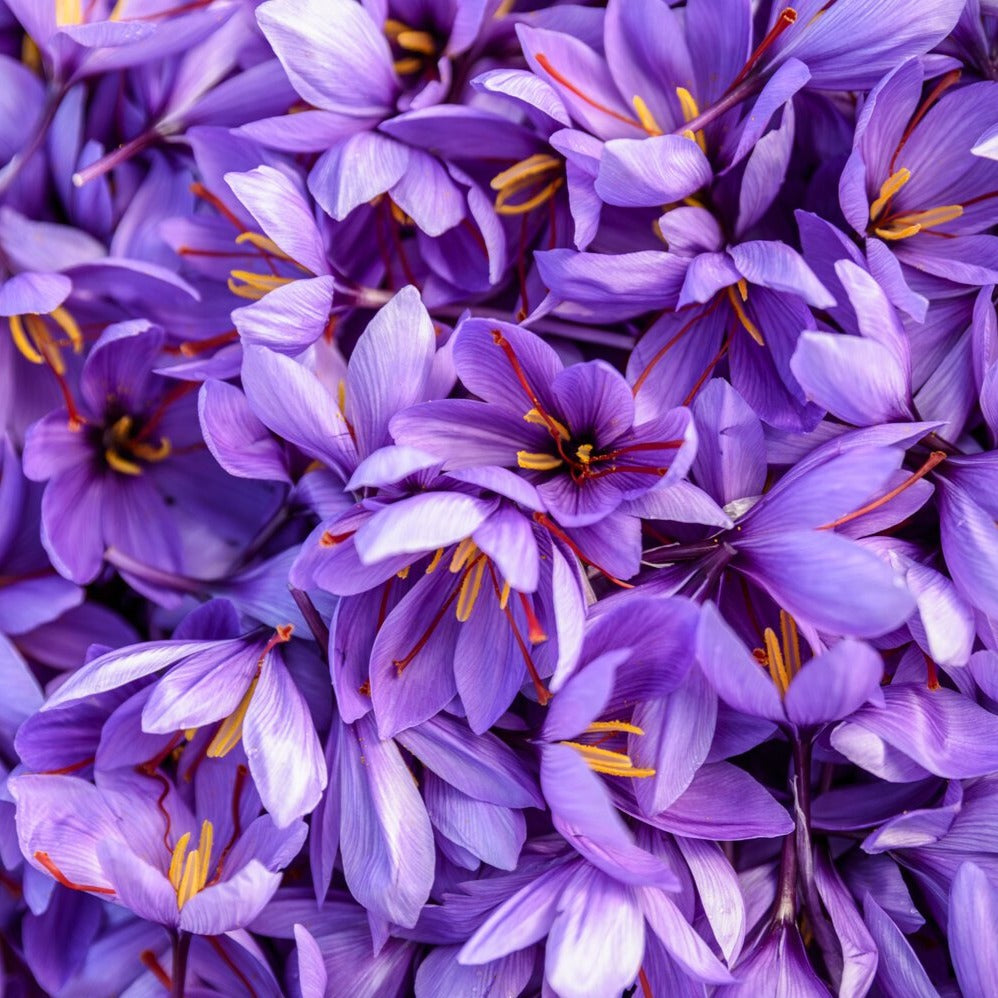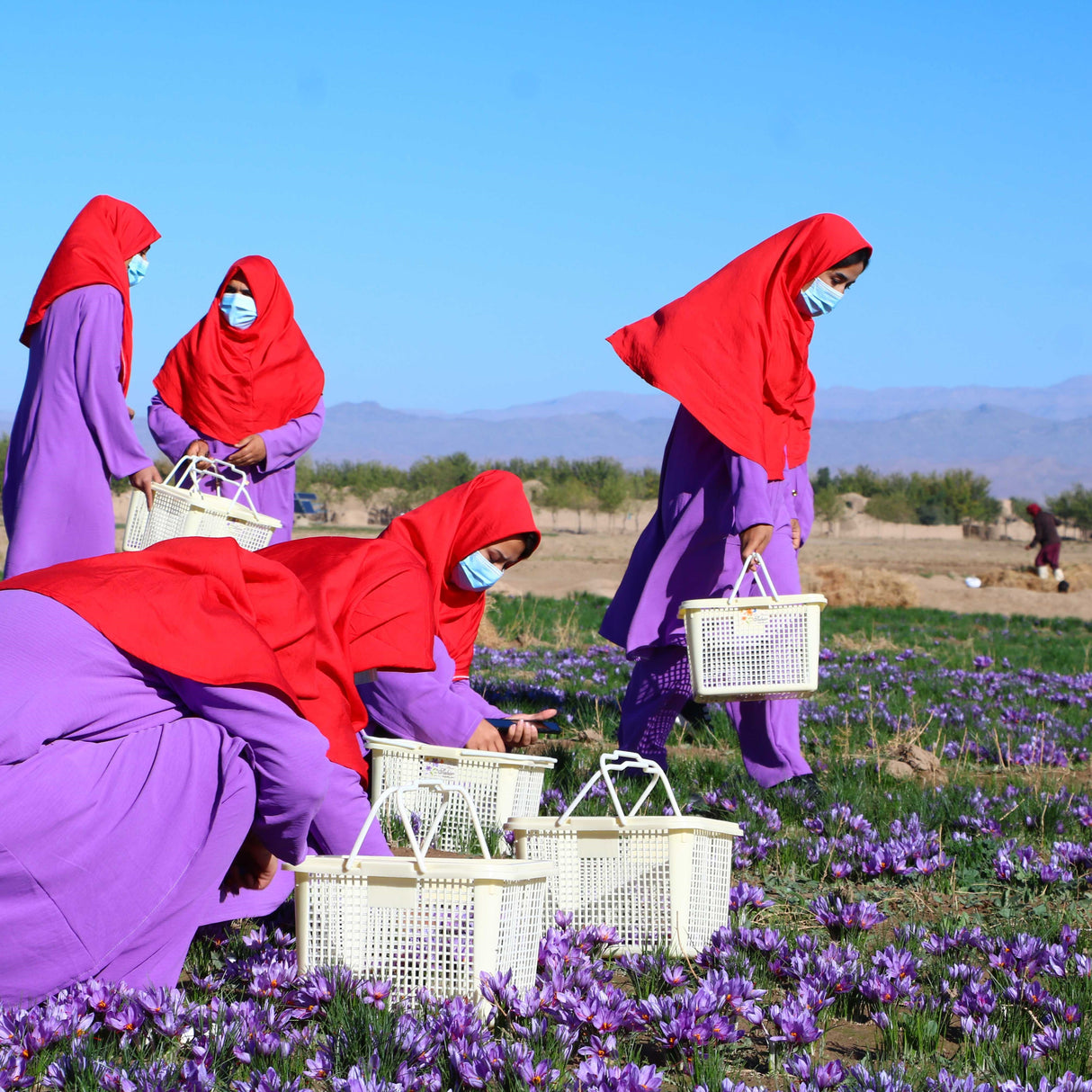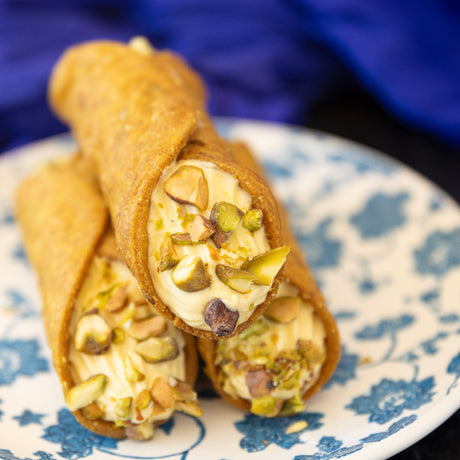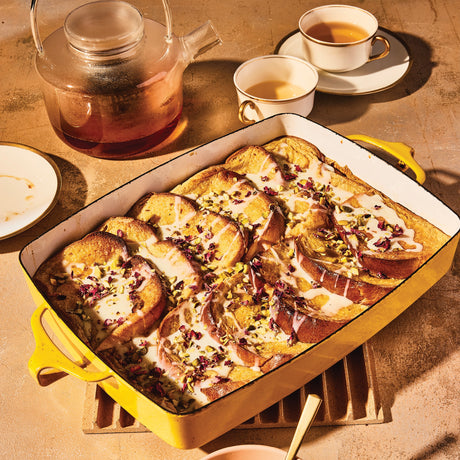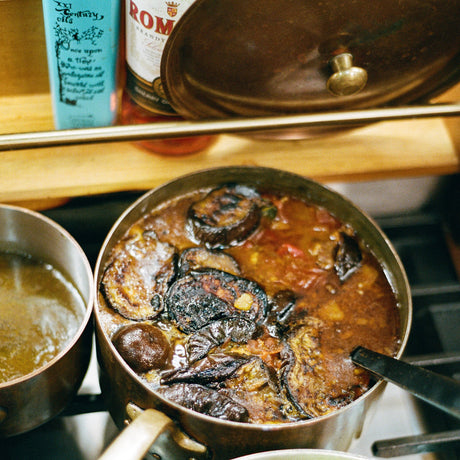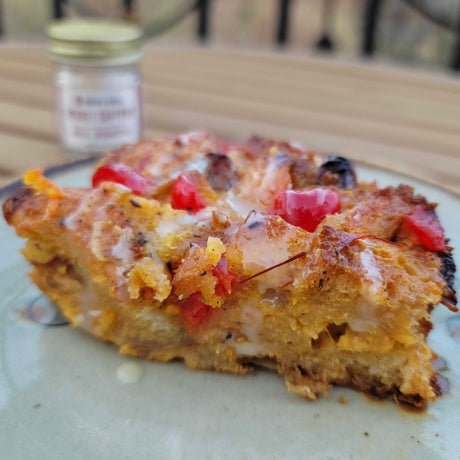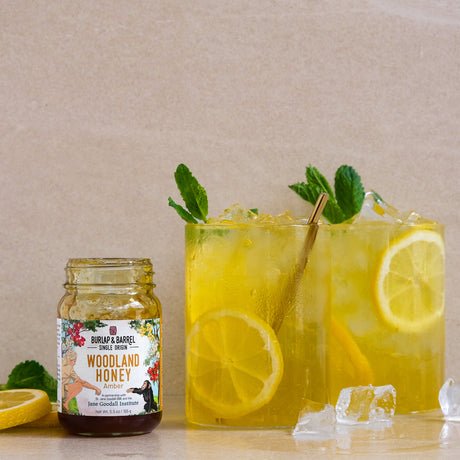
Herati Saffron
Delicate floral flavor, golden color and warm, honeyed fragrance.
Herati Saffron - 0.5 g glass mini jar is backordered and will ship as soon as it is back in stock.
Why Burlap & Barrel?
Single origin spices sourced directly from small farms
Over 12,000 5-star reviews
Guaranteed to wow you or we'll replace
Our uncommonly delicate Herati Saffron threads have a beautiful delicate floral flavor, golden color and warm, honeyed fragrance reminiscent of dried roses and fresh hay. The saffron is harvested by a cooperative of farmers. They carefully pull the threads from the flower, leaving a characteristic flame-colored tail, and sun-dry them. Saffron is a key element in sweet and savory cuisines from the Mediterranean to South Asia. It adds a distinctive floral flavor and golden color to fragrant rice dishes like paella, risotto and biryani, to frozen desserts like ice cream and kulfi, and to teas.
Our saffron is of the highest quality, sometimes called super negin or sargol, depending on how it is harvested and graded. The slight gradation in color is your assurance that our saffron is 100% pure and never dyed or otherwise adulterated.
Highlights
Ingredients
Whole saffron threads (Crocus sativa)
Cooking tips
- Steep a few threads in warm water when making crunchy baked rice
- Add a pinch of threads when making paella
- Fold into buttery bread, cake or cookie doughs
- Steep in cream for a rich pasta sauce
Recipes
Sourcing
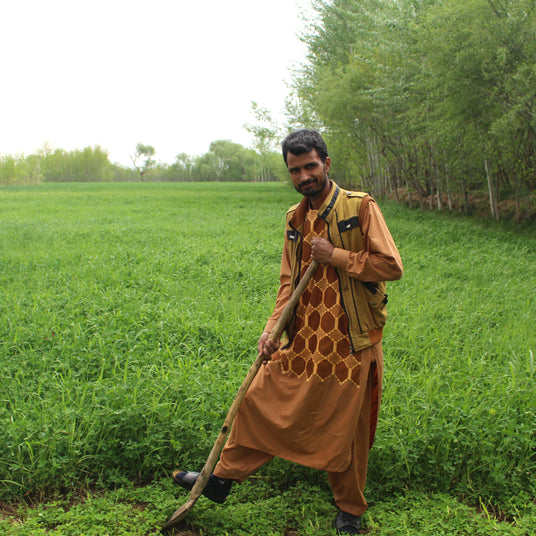
Our saffron is cultivated in the deserts of the Herat province in western Afghanistan, on the border with Iran, where saffron has grown for thousands of years. During the annual harvest in November and December, farmers begin work at dawn, plucking the beautiful white and purple crocus flowers before the desert sun can wilt them and ruin the invaluable stigmas. Each flower produces only three stigmas, which are painstakingly extracted by hand and dried.
Saffron is immensely valuable, and like any valuable product, dishonest traders may attempt to deceive consumers about the quality of their product. Safflower, a different flower entirely, is sometimes sold as saffron; safflower petals have straight, orange threads, while true saffron threads are deep red, curled and tangled. Lower-grade saffron threads may also be cut and colored with red dye to make them appear higher quality.
Meet the farmer: Shakoor, left, farms saffron in Herat, Afghanistan, as part of the collective of farmers who grow our spectacular saffron.



